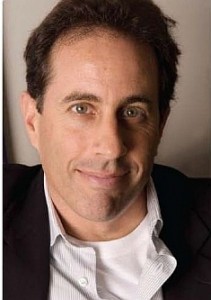Peter
Finally some good news on the economic front.
U.S. Poised to Become the Low-Cost Manufacturer of the Developed World
Our analysis suggests that the U.S. is steadily becoming one of the lowest-cost countries for manufacturing in the developed world. We estimate that by 2015, average manufacturing costs in the five major advanced export economies that we studied—Germany, Japan, France, Italy, and the U.K.—will be 8 to 18 percent higher than in the U.S. Among the biggest drivers of this advantage will be the costs of labor (adjusted for productivity), natural gas, and electricity. As a result, we estimate that the U.S. could capture up to 5 percent of total exports from these developed countries by the end of the decade. The shift will be supported by a significant U.S. advantage in shipping costs in important trade routes compared with other major manufacturing economies.
These shifting cost dynamics are likely to have a significant impact on world trade. China and the major developed economies account for around 75 percent of global exports. And the U.S. export surge will be felt across a wide range of U.S. industries.
Jerry Seinfeld’s Chains Productivity Secret
Everyone has been talking about the chain method for building commitment and focus of late. It’s been attributed to Jerry Seinfeld but I have a recollection of reading about it somewhere long ago.
In a nut shell, it works like this:
He [Seinfeld] said the way to be a better comic was to create better jokes and the way to create better jokes was to write every day. But his advice was better than that. He had a gem of a leverage technique he used on himself and you can use it to motivate yourself—even when you don’t feel like it.
He revealed a unique calendar system he uses to pressure himself to write. Here’s how it works.
How JP Morgan Made His Money
JP Morgan (1837 – 1913) was the most powerful American banker of the second half of the 19th century and early part of the 2oth. He is perhaps best known for managing the deal in which US Steel Corporation was created through a merger of Andrew Carnegie’s Carnegie Steel Company and the Federal Steel Company. US Steel became the first billion dollar company in history.
Morgan quickly became the go to guy when the government needed financial assistance.
He once observed that a man always has at least two reasons for why he does something: A reason that sounds good and the real reason.
It’s a good point to keep in mind during negotiations.
Here’s a 44 minute documentary on him. Morgan is also a major character in History Channel’s The Men Who Made America series.
Growing Eco-Me From $500K to $10 Million
After the last two train wrecks, Hank Maarse and Planet Popcorn, I had a good vibe about Eco-Me just five minutes into the episode. It was also obviously time for a business that could actually be saved by our hero. (It’s pretty safe to assume that Marcus and CNBC pick a few bad apples for purely entertainment reasons in the same way that Lord Sugar and The Donald include a few bunglers and villains among their apprentice candidates. After all, if there isn’t some drama no one will watch.
It’s Not Rocket Surgery
Small Business vs Entrepreneurship vs Capitalism
If you are trying to get a handle on The Tycoon Playbook as some still are, I think this may help.
Think of the business world as having three separate rungs. At the bottom you have the small business rung. The consensus definition of small business is that it’s primarily about having a steady pay-check for oneself with a little extra left over, hopefully, for the Golden Years. As a result, typical small business owners are concerned with playing it safe, taking as few risks as possible, and basically maintaining the status quo. Once a small business owner has reached a certain level of income their focus shifts to merely maintaining it rather than increasing it. Many small businesses can be found along the proverbial “Main Street.”
On the next rung up is entrepreneurship. Entrepreneurship is an entirely different game. It’s about marshaling resources and taking calculated risks to create something new that will hopefully reward the founders with substantial wealth. Entrepreneurship has no allegiance to the status quo. Rather it’s about starting from scratch and disrupting the marketplace. Most entrepreneurial ventures will be found in emerging industries and fast growth markets.

Recent Comments